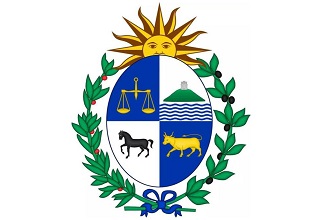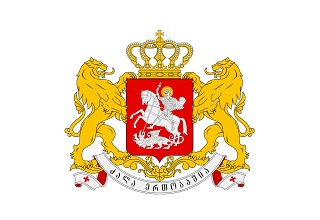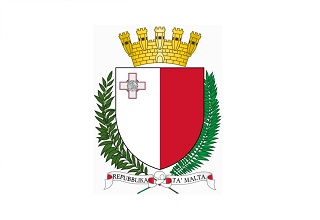Regarding the Inspection and Quarantine Requirements for Kidney Bean from Ethiopia to China
I. Inspection and quarantine basis
(1) "Biosafety Law of the People's Republic of China";
(2) "Law of the People's Republic of China on Entry and Exit Animal and Plant Quarantine" and its implementing regulations;
(3) "Food Safety Law of the People's Republic of China" and its implementing regulations;
(4) "Import and Export Commodity Inspection Law of the People's Republic of China" and its implementing regulations;
(5) "Regulations on the Supervision and Administration of Entry and Exit Grain Inspection and Quarantine";
(6) "Regulations on the Administration of Import and Export Food Safety of the People's Republic of China";
(7) "Protocol on Inspection and Quarantine Requirements for the Export of Ethiopian Kidney Beans to China between the General Administration of Customs of the People's Republic of China and the Ministry of Agriculture of the Federal Democratic Republic of Ethiopia".
II. Names of commodities allowed to enter the country
The kidney beans (Phaseolus vulgaris L.) in this announcement refer to kidney bean grains grown and processed in Ethiopia and exported to China for consumption or food processing.
III. Permitted origin
The whole territory of Ethiopia.
IV. Enterprise Registration
Kidney beans exported to China should come from processing enterprises approved by the Ethiopian Ministry of Agriculture. The Ethiopian Ministry of Agriculture should provide the Chinese Customs with a list of qualified enterprises in advance. The Chinese Customs will review and register them, publish and dynamically update them on the customs website.
V. Pests of Concern
Kidney beans exported to China must not carry the following quarantine pests:
1. Bruchidius atrolineatus
2. Callosobruchus analis
3. Callosobruchus maculatus
4. Zabrotes subfasciatus
5. Acanthoscelides obtectus
6. Lolium temulentum
7. Didymella pinodella
8. Pseudomonas savastanoi pv. phaseolicola
9. Apple stem grooving virus
VI. Pre-shipment requirements
(I) Production requirements.
1. The Ethiopian Ministry of Agriculture should conduct pest investigations and control during the growth and storage period of kidney beans. During the growth period, quarantine pests of concern to China Customs shall be investigated and monitored, and effective field pest control measures shall be implemented to reduce the occurrence of pests. If pests or their corresponding symptoms are found during monitoring, comprehensive management measures shall be taken to ensure that kidney beans exported to China do not carry quarantine pests of concern to China Customs. According to the needs of China Customs, the Ethiopian Ministry of Agriculture shall inform China Customs of the investigation methods and results of pests.
2. The Ethiopian Ministry of Agriculture shall supervise the processing, packaging, warehousing and shipping of kidney beans exported to China, and processing and storage enterprises shall establish a sound quality management and traceability system to ensure that the goods can be accurately traced. The Ethiopian Ministry of Agriculture shall supervise enterprises to strictly screen and remove impurities, and effectively remove insects, mites, mollusks, soil, weed seeds and other plant residues.
3. Before export, kidney beans should be stored separately, and processing enterprises should take effective pest control measures to prevent kidney beans from being infested by pests.
(II) Packaging and transportation requirements.
1. The packaging materials of kidney beans exported from Ethiopia to China should be clean and sanitary and used for the first time, and comply with relevant Chinese plant quarantine requirements. The name of the processing company and the corresponding registration number and other information should be marked in English or Chinese on each package, and "Exported to the People's Republic of China" (输往中华人民共和国) should be marked in English or Chinese.
2. Before shipping kidney beans, the transportation vehicles should be thoroughly inspected and cleaned to prevent pests from mixing in.
(III) Product requirements.
Kidney beans exported to China should comply with China's inbound plant quarantine laws and regulations and national food safety standards, and should not contain plant residues, soil or living quarantine pests of concern to Chinese customs.
(IV) Pre-export inspection and quarantine and certificate requirements.
Before export, the Ethiopian Ministry of Agriculture should conduct inspection and quarantine on kidney beans exported to China. For goods that meet the requirements, a phytosanitary certificate shall be issued in accordance with the International Standard for Phytosanitary Measures No. 12 (ISPM12), indicating the name or registration number of the processing enterprise, the container number and the seal number, and an additional statement shall be stated: "This consignment complies with the requirements specified in the Protocol of Inspection and Quarantine Requirements for Export of kidney beans from Ethiopia to China, and is free from quarantine pests of concern to China."
For kidney beans exported to China that have been fumigated, the name of the fumigant, the dosage used, the treatment temperature and duration, etc. shall be indicated in the phytosanitary certificate.
VII. Entry Inspection and Quarantine
After kidney beans exported to China arrive at the Chinese entry port, the Chinese Customs shall implement inspection and quarantine in accordance with the following requirements:
(I) Certificate verification.
1. Verify whether the "Entry Animal and Plant Quarantine Permit" has been obtained.
2. Verify whether it comes from a registered enterprise.
3. Verify whether the attached phytosanitary certificate is authentic and valid.
(II) Goods inspection.
1. According to relevant laws, administrative regulations, rules, etc., combined with the requirements of this announcement, inspection and quarantine of imported kidney beans shall be implemented. Those that pass the inspection and quarantine shall be allowed to enter the country.
2. Kidney beans shall be inspected and quarantined at the supervision sites designated by the Chinese Customs.
(III) Disqualified treatment.
1. If there is no valid plant quarantine certificate, it shall be returned or destroyed.
2. If it comes from an unregistered processing enterprise, it shall be returned or destroyed.
3. If soil is found, it shall be returned or destroyed.
4. If quarantine pests or other living quarantine pests, plant residues, etc. of concern to the Chinese Customs are found, they shall be treated by pest control, return or destruction.
5. If it is found that it does not meet the food safety requirements of China, it shall be handled in accordance with relevant laws and regulations.
If the above non-compliance is found, the Chinese Customs will notify the Ethiopian Ministry of Agriculture and suspend the relevant enterprises' qualifications to import into China depending on the severity of the violation until the Chinese Customs confirms that the problem has been effectively rectified.
GACC
Sep. 13, 2024




